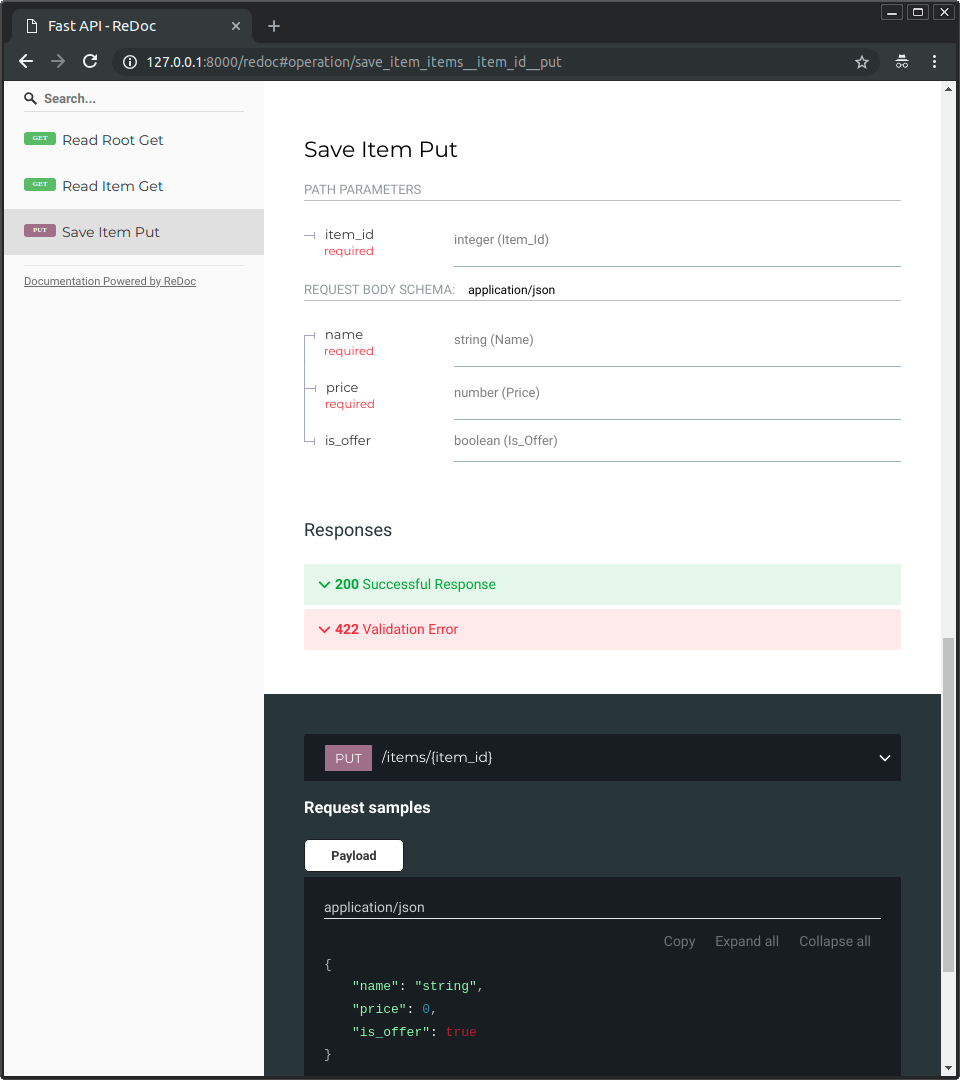- Sort Score
- Result 10 results
- Languages All
Results 801 - 810 of 878 for functies (0.05 sec)
-
README.md
 ### Recap { #recap } In summary, you declare **once** the types of parameters, body, etc. as function parameters. You do that with standard modern Python types. You don't have to learn a new syntax, the methods or classes of a specific library, etc. Just standard **Python**. For example, for an `int`:Registered: Sun Sep 07 07:19:17 UTC 2025 - Last Modified: Sun Aug 31 15:19:49 UTC 2025 - 24.3K bytes - Viewed (0) -
cmd/erasure-server-pool-rebalance.go
} return nil } // updates rebalance.bin from let's say 2 pool setup in the middle // of a rebalance, was expanded can cause z.rebalMeta to be outdated // due to a missing new pool. This function tries to handle this // scenario, albeit rare it seems to have occurred in the wild. // // since we do not explicitly disallow it, but it is okay for them // expand and then we continue to rebalance.
Registered: Sun Sep 07 19:28:11 UTC 2025 - Last Modified: Thu Sep 04 20:47:24 UTC 2025 - 28.9K bytes - Viewed (0) -
cmd/metrics-v2.go
dependGlobalLockServer bool dependGlobalIsDistErasure bool dependGlobalBackgroundHealState bool dependBucketTargetSys bool } // RegisterRead register the metrics populator function to be used // to populate new values upon cache invalidation. func (g *MetricsGroupV2) RegisterRead(read func(context.Context) []MetricV2) { g.metricsCache = cachevalue.NewFromFunc(g.cacheInterval,
Registered: Sun Sep 07 19:28:11 UTC 2025 - Last Modified: Fri Aug 29 02:39:48 UTC 2025 - 133.4K bytes - Viewed (0) -
guava-tests/test/com/google/common/collect/ImmutableSetMultimapTest.java
import com.google.common.testing.SerializableTester; import java.util.Arrays; import java.util.Collection; import java.util.Collections; import java.util.Map.Entry; import java.util.function.BiPredicate; import java.util.stream.Collector; import junit.framework.Test; import junit.framework.TestCase; import junit.framework.TestSuite; import org.jspecify.annotations.NullMarked;
Registered: Fri Sep 05 12:43:10 UTC 2025 - Last Modified: Thu Aug 07 16:05:33 UTC 2025 - 28.7K bytes - Viewed (0) -
CHANGELOG/CHANGELOG-1.2.md
* Bump to container-vm-v20160321 ([#23313](https://github.com/kubernetes/kubernetes/pull/23313), [@zmerlynn](https://github.com/zmerlynn)) * Remove the restart-kube-proxy and restart-apiserver functions ([#23180](https://github.com/kubernetes/kubernetes/pull/23180), [@roberthbailey](https://github.com/roberthbailey))
Registered: Fri Sep 05 09:05:11 UTC 2025 - Last Modified: Fri Dec 04 06:36:19 UTC 2020 - 41.4K bytes - Viewed (0) -
CHANGELOG/CHANGELOG-1.9.md
* Apply algorithm in scheduler by feature gates. ([#52723](https://github.com/kubernetes/kubernetes/pull/52723),[ @k82cn](https://github.com/k82cn))
Registered: Fri Sep 05 09:05:11 UTC 2025 - Last Modified: Tue Nov 16 10:46:27 UTC 2021 - 313.7K bytes - Viewed (0) -
tensorflow/c/c_api_test.cc
TF_Graph* graph = TF_NewGraph(); // Make a placeholder operation. TF_Operation* feed = Placeholder(graph, s); ASSERT_EQ(TF_OK, TF_GetCode(s)) << TF_Message(s); // Test TF_Operation*() query functions. EXPECT_EQ(string("feed"), string(TF_OperationName(feed))); EXPECT_EQ(string("Placeholder"), string(TF_OperationOpType(feed))); EXPECT_EQ(string(""), string(TF_OperationDevice(feed)));
Registered: Tue Sep 09 12:39:10 UTC 2025 - Last Modified: Fri Dec 27 12:18:10 UTC 2024 - 97K bytes - Viewed (0) -
okhttp/src/jvmTest/kotlin/okhttp3/KotlinSourceModernTest.kt
import org.junit.jupiter.api.Assumptions.assumeFalse import org.junit.jupiter.api.BeforeEach import org.junit.jupiter.api.Disabled import org.junit.jupiter.api.Test /** * Access every type, function, and property from Kotlin to defend against unexpected regressions in * modern 4.0.x kotlin source-compatibility. */ @Suppress( "ASSIGNED_BUT_NEVER_ACCESSED_VARIABLE", "UNUSED_ANONYMOUS_PARAMETER",
Registered: Fri Sep 05 11:42:10 UTC 2025 - Last Modified: Sat Jun 21 20:36:35 UTC 2025 - 46.5K bytes - Viewed (0) -
src/main/java/org/codelibs/fess/api/json/SearchApiManager.java
import java.util.ArrayList; import java.util.Collections; import java.util.Date; import java.util.HashMap; import java.util.List; import java.util.Locale; import java.util.Map; import java.util.UUID; import java.util.function.Supplier; import org.apache.commons.lang3.ArrayUtils; import org.apache.commons.lang3.StringUtils; import org.apache.commons.text.StringEscapeUtils; import org.apache.logging.log4j.LogManager;
Registered: Thu Sep 04 12:52:25 UTC 2025 - Last Modified: Thu Aug 07 03:06:29 UTC 2025 - 54.6K bytes - Viewed (1) -
docs/en/docs/index.md
 ### Recap { #recap } In summary, you declare **once** the types of parameters, body, etc. as function parameters. You do that with standard modern Python types. You don't have to learn a new syntax, the methods or classes of a specific library, etc. Just standard **Python**. For example, for an `int`:Registered: Sun Sep 07 07:19:17 UTC 2025 - Last Modified: Sun Aug 31 10:49:48 UTC 2025 - 21.3K bytes - Viewed (0)